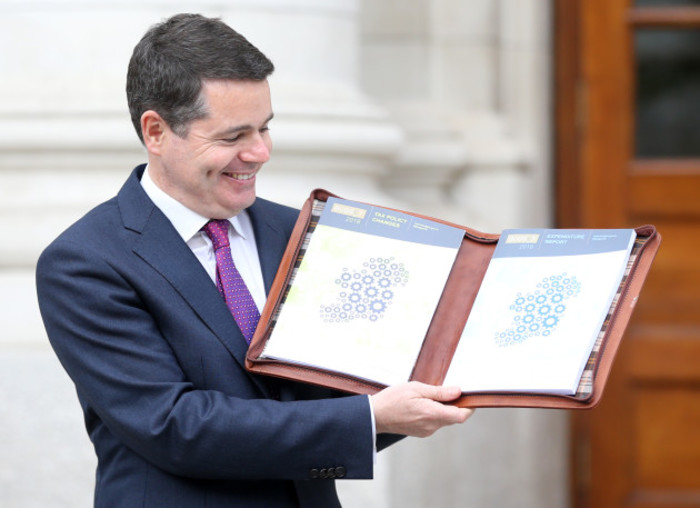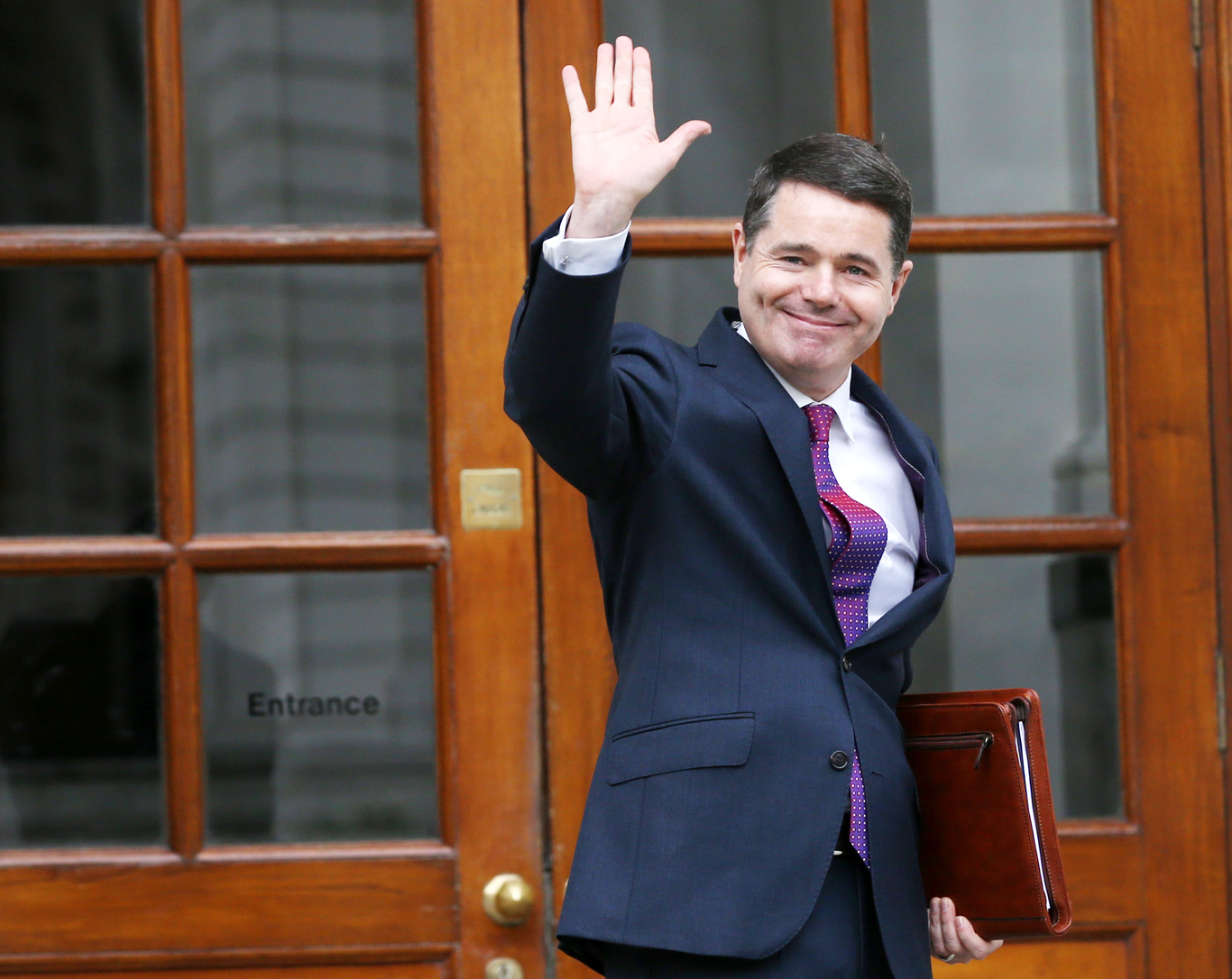The tanning tax and a new minimum wage: These Budget measures have just kicked in
Here’s a round-up of policies that have just taken effect.
YOU MIGHTN’T HAVE noticed, but everyone got just a little bit richer yesterday when some of the budget measures outlined by finance minister Paschal Donohoe back in October came into force.
As you might recall, there were very few surprises in the government’s fiscal plan for the next 12 months when it was first unveiled last year.
It certainly wasn’t the most memorable announcement – some opposition TDs dismissed Budget 2018 as unimaginative, dubbing it a “cup-of-coffee budget”.
To remind you of the key changes that were introduced for this financial year, we’ve compiled a quick summary of some of the main proposals that have just kicked into action:
The basics
First off, the standard rate income tax bracket for all earners has increased by €750. So the entry point for single earners just jumped from €33,800 to €34,550.
The 2.5% rate of USC was reduced to 2% and its ceiling increased from €18,772 to €19,372.
The earned income tax credit for self-employed people increased from €950 to €1,150.
To the dismay of many business lobby groups, the minimum wage also went up yesterday by 30c to €9.55 an hour.
KEEP scheme
For many years, small businesses have been calling on the government to introduce a scheme that would make it easier for them to grant shares to valuable employees – and deter them from moving to greener pastures.
Their wish came true in the last 24 hours with the rollout of the ‘Key Employee Engagement Programme’, or KEEP for short, which is supposed to provide SMEs with a vehicle to offer workers a financial incentive linked to a company’s performance.
For workers, the biggest attraction of KEEP is that shares allotted under the scheme aren’t taxed as income: instead of paying roughly 50% in taxes, they’ll instead pay capital gains tax at a rate of 33%.
 Finance minister Paschal Donohoe
Finance minister Paschal Donohoe
However, as Fora explained at the time of its announcement, there are a few potential problems with the new scheme.
For example, a company can’t issue shares under the scheme more than €3 million at any one time, which creates another problem: in order to calculate the value of the shares issued, business owners have to know the value of the company.
The cost of getting a firm valued can cost around €15,000 – not exactly small change for SMEs. We’ll have to keep an eye on this one over the coming year.
Tanning tax
Perhaps the most peculiar Budget 2018 announcement was the news that sunbed salons will now be charged a higher VAT rate.
The so-called ‘tanning tax’ came into force yesterday, with the rate of VAT collected by service providers jumping from 13.5% to 23%.
The Minister for Finance hiked the bill in an effort to discourage consumers from using sunbeds, saying there is “clear evidence” linking them to skin cancer.
The government said that it expects a “minimal” gain from the move – documents show that it has been budgeted for a grand total of €0.
Electric car relief
Drivers of electric company cars will be given a tax break from now until the end of December after the 0% benefit-in-kind rate came into force.
Electricity used in the workplace for charging electric vehicles will also be exempt from benefit-in-kind.
The year-long tax break comes on top of the current vehicle registration tax relief of up to €5,000 and the existing Sustainable Energy Authority of Ireland grant of up to €5,000 for people who buy electric cars.
Later in the year
The €300 million Brexit loan scheme is still in the pipeline. The programme, which will be facilitated through the Strategic Banking Corporation of Ireland, will open from March 2018.
The scheme is expected to remain in place until 2020 and will offer loans to Brexit-hit businesses with up 500 employees at a proposed interest rate of 4%.
Meanwhile, the sugar tax for soft drinks comes into force on 1 April, when a 30c tax per litre will be applied to drinks with over eight grams of sugar per 100ml, along with a 20c per litre hike on those with five to eight grams of sugar per 100ml.






